Finally, after one year of pandemia and delays, Dagitab II is here. Online, but in this way we can accommodate more students. Here you have all the information. PH stands for Philippine time, BE stands for Belgian time (UTC+2)
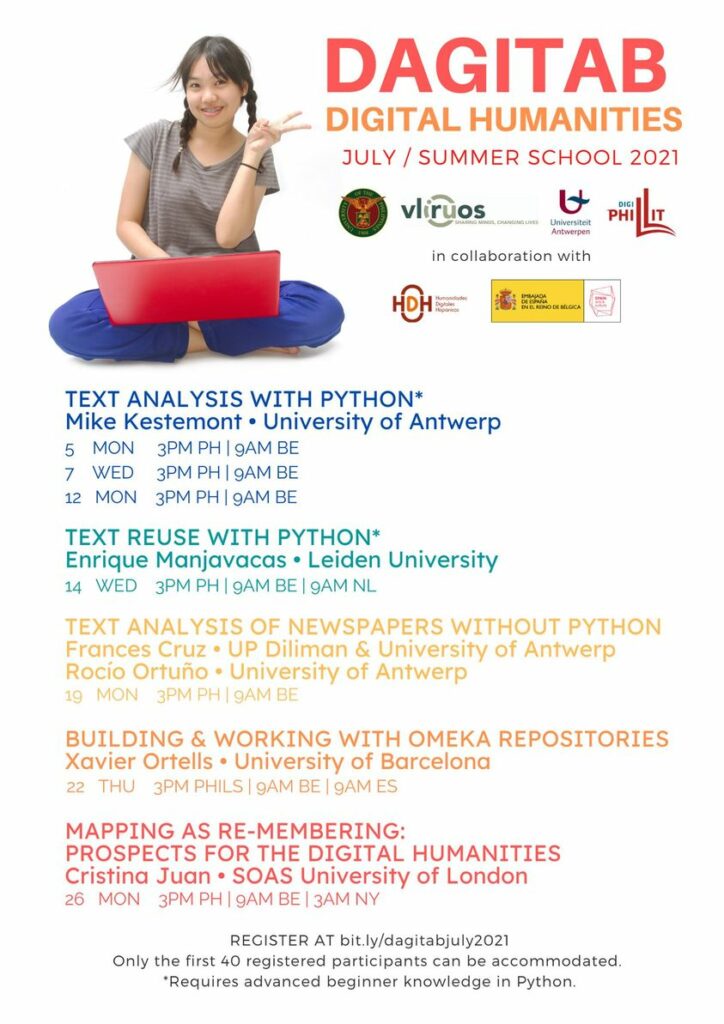
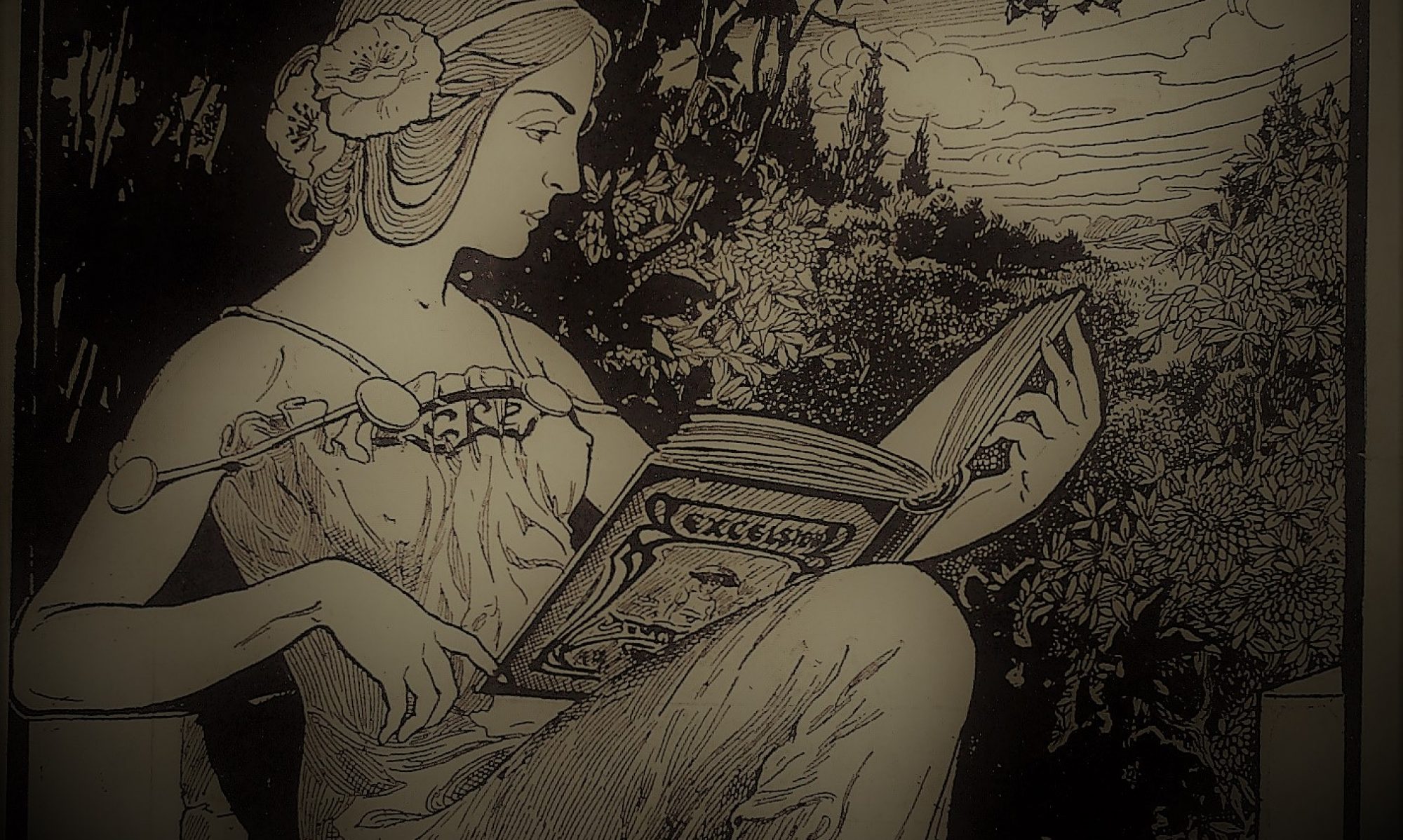
Digitization of rare Philippine periodicals from the University of the Philippines Diliman and research in Digital Humanities. A project developed by the University of Antwerp and UP Diliman and funded by VLIRUOS.
Finally, after one year of pandemia and delays, Dagitab II is here. Online, but in this way we can accommodate more students. Here you have all the information. PH stands for Philippine time, BE stands for Belgian time (UTC+2)

After the long break imposed by COVID we will be back with Dagitab II -A second summer school on Digital Humanities organized by the University of Antwerp and the University of the Philippines and funded by VLIRUOS- . Before Dagitab II there are a few things that old students might want to refresh and new students might want to learn. This is why we have organized a webinar series between March and May. All the information in the poster below. Please remember that on this website you also have all the materials from Dagitab I, in case you would like to have a look at them again.
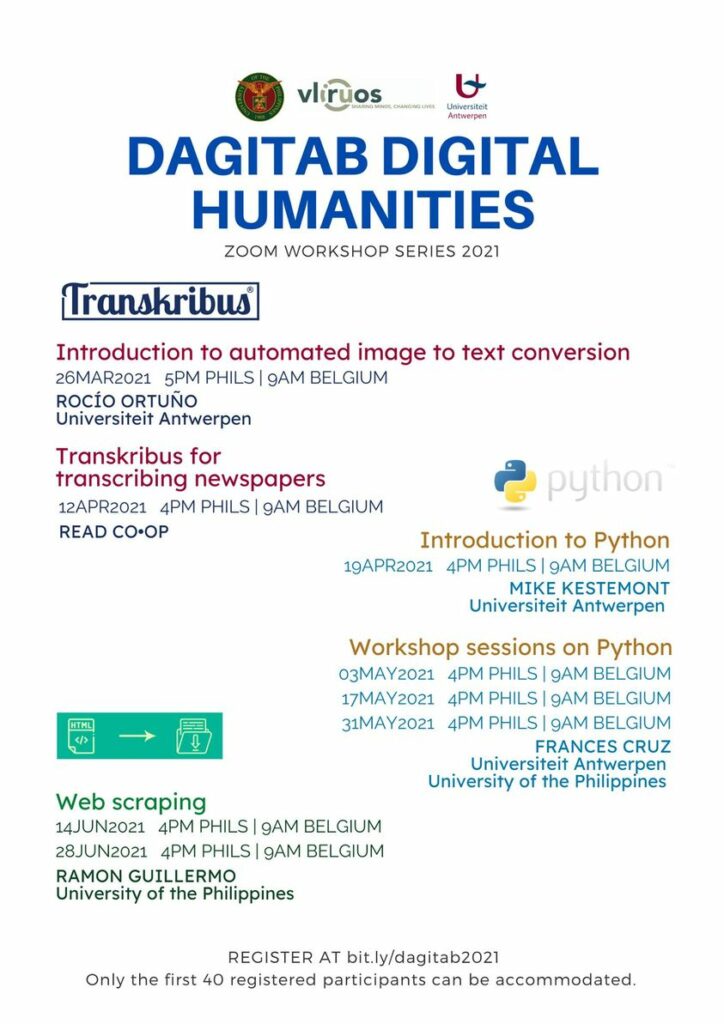

Biblioteca Virtual Miguel de Cervantes is beginning to upload the newspapers digitized two years ago at the Hemeroteca Municipal de Madrid. They are mostly Philippine newspapers of the late 19th and early 20th century written in Spanish such as Comercio: Diario de la tarde from 1887, which can be accessed in this link. More information on this is available today in their blog.
A new project combining Digital Humanities and Philippine Literature in Spanish was elected for funding by the Erasmus+ programme last August. It is coordinated from the University of Antwerp and there are five more member universities: Clermont-Auvergne, Paris Nanterre, Rey Juan Carlos, UNED and Ateneo de Manila University.
Among the different training activities that we are planning for this project, next February there will be a DH online workshop series (in Spanish mostly). You can see more information about it here https://digiphilit.uantwerpen.be/
The project and the site are in continuous development despite the confinement and the strange circumstances in which most of us find ourselves right now. We have now three more sections in our website:
Enjoy and #stayhome
After the summer course in QC, the communication channels between Belgium and the Philippines are being kept open for questions, ideas, projects, and suggestions. All this can be shared on the ‘discussion’ section of the Humanities Commons group DAGITAB https://hcommons.org/groups/dagitab/
In this group, the materials used during the summer course (slides, explanations, data, etc) are being shared for the future consultation and use of the attendees.
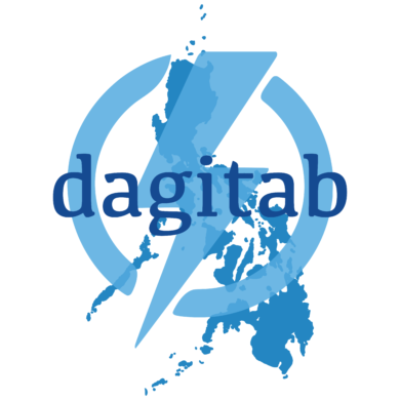
Last July started the second part of the Philperiodicals project with a Summer school in Manila on Digital Humanities. The workshop, Dagitab, is the first part of a two-workshops series and we hope that it can be echoed in different UP Campuses soon. A three-national team of DH practitioners (2 Philippine, 2 Belgian and 2 Spanish) coordinated by Dr Anna Sibayan-Sarmiento, delivered the sessions. Attendants included UP researchers from Diliman, Baguio, Iloilo, Cebu, and Mindanao.
The first part of the Philperiodicals project consists of the digitization of historical newspapers from the University of the Philippines Diliman library. Thus, the main aim of this workshop was making the most of those digitized materials with digital tools.
The materials of the sessions will be available in this Humanities Commons group: https://hcommons.org/groups/dagitab/.
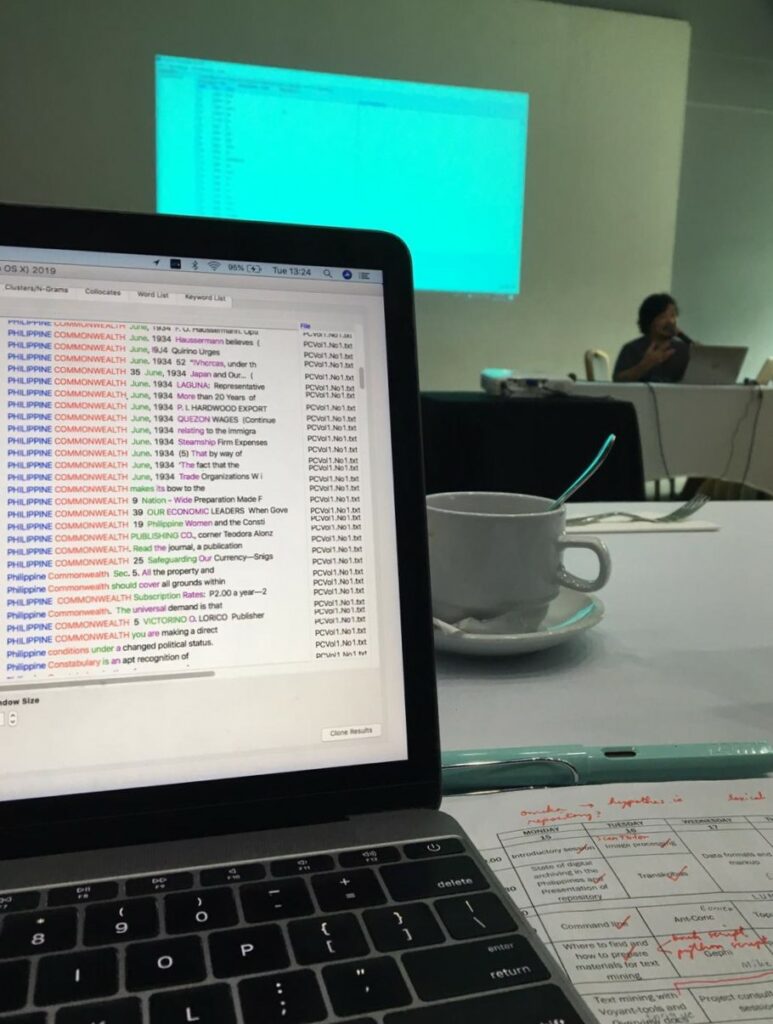
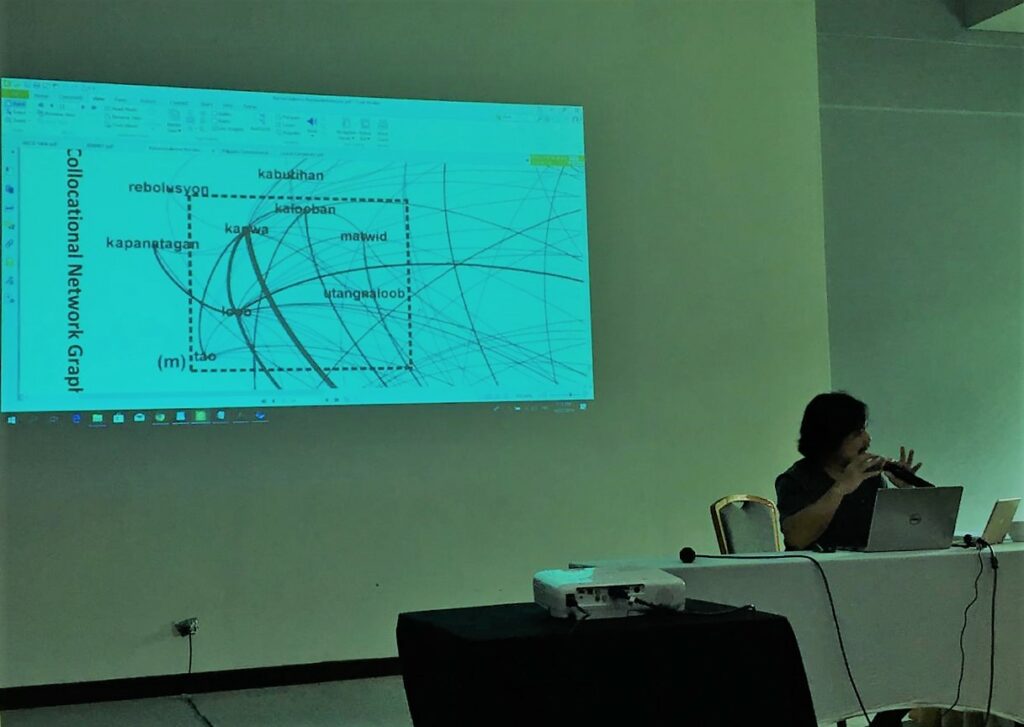
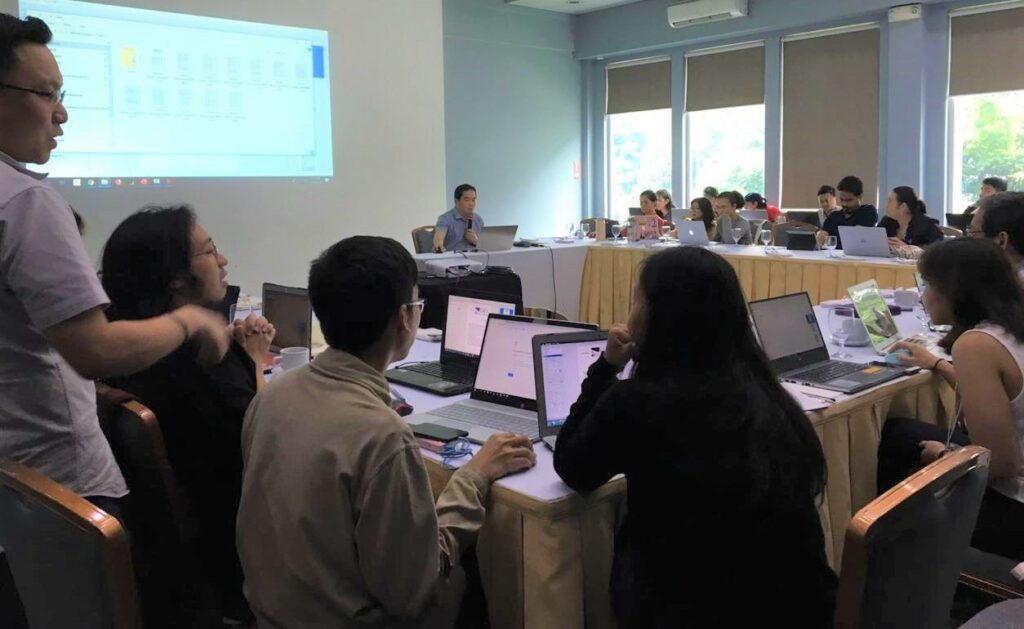
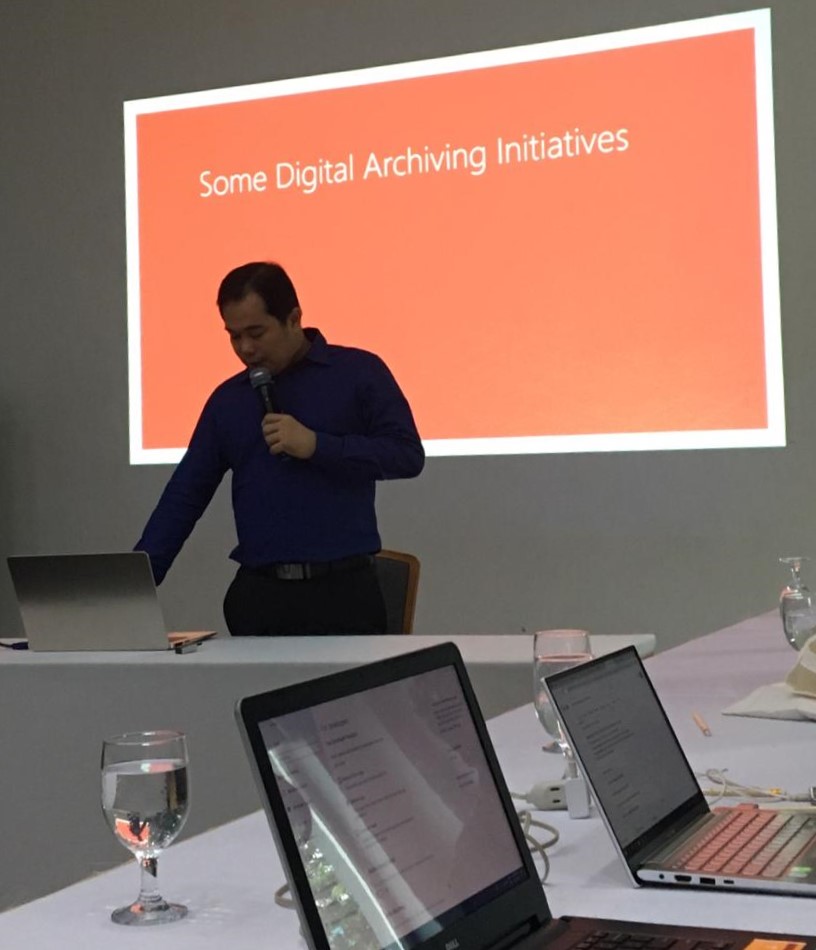
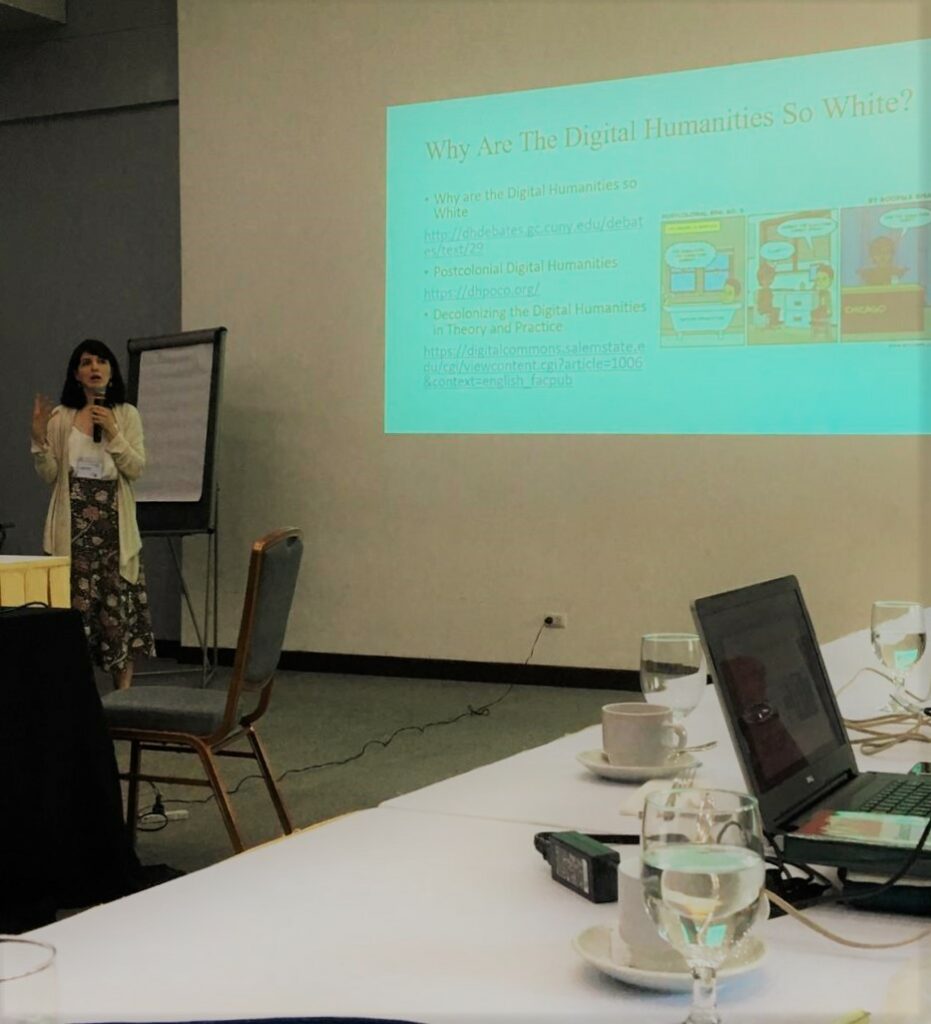
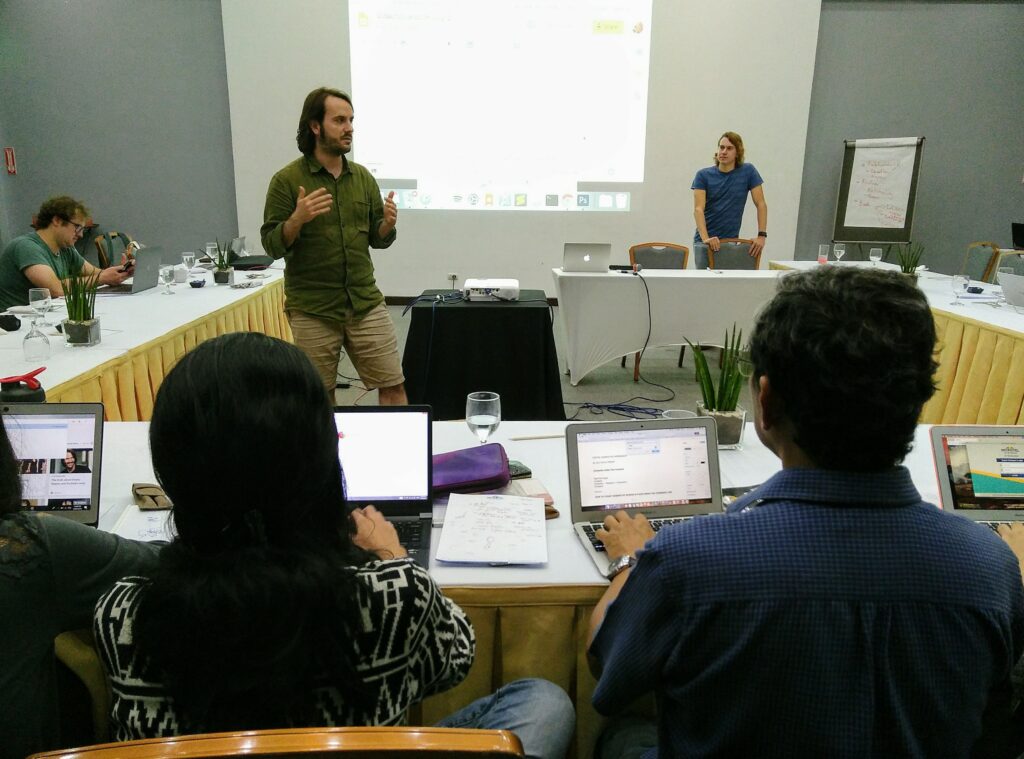
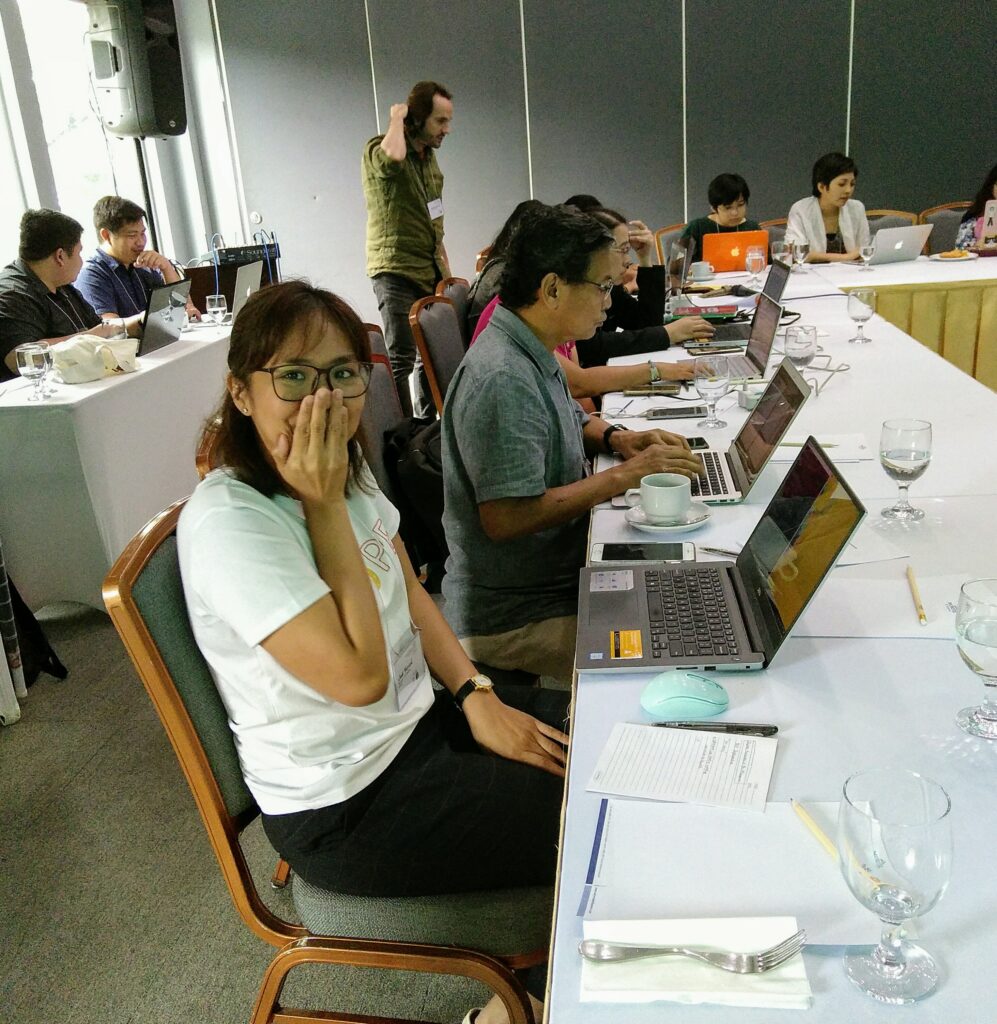
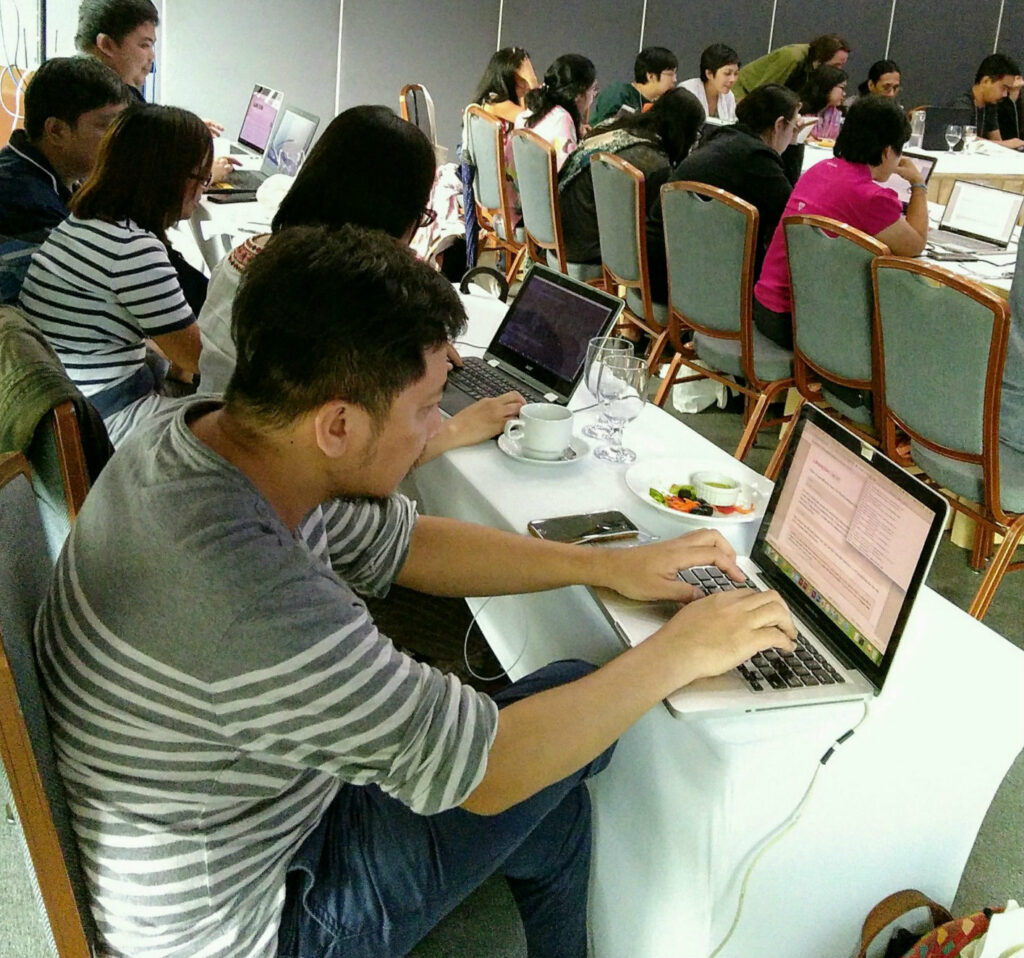
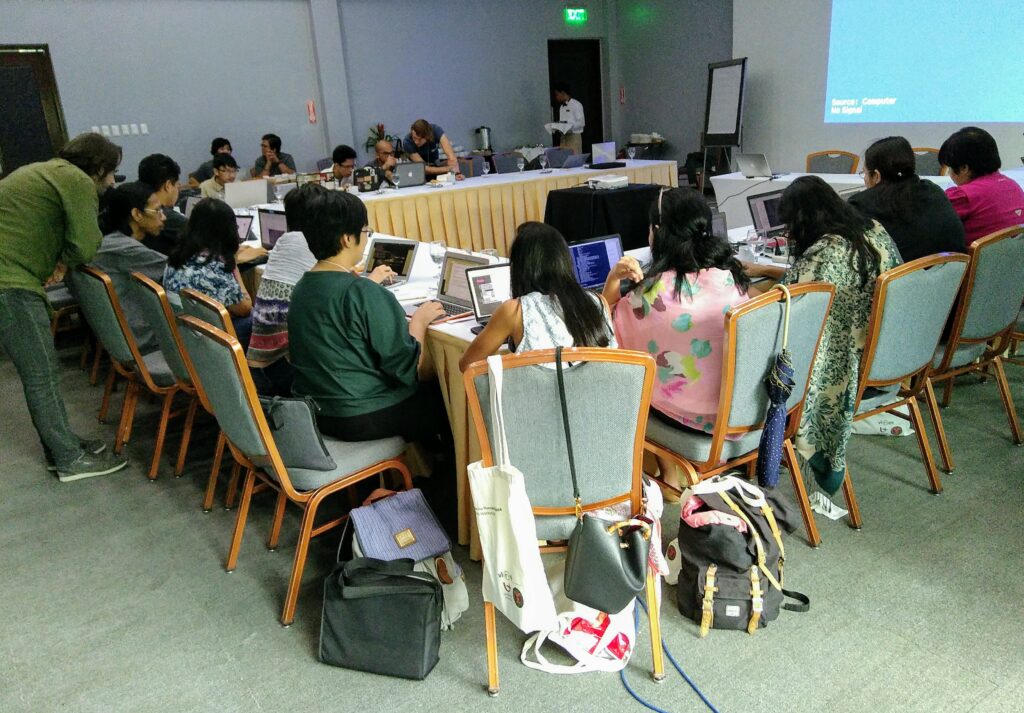
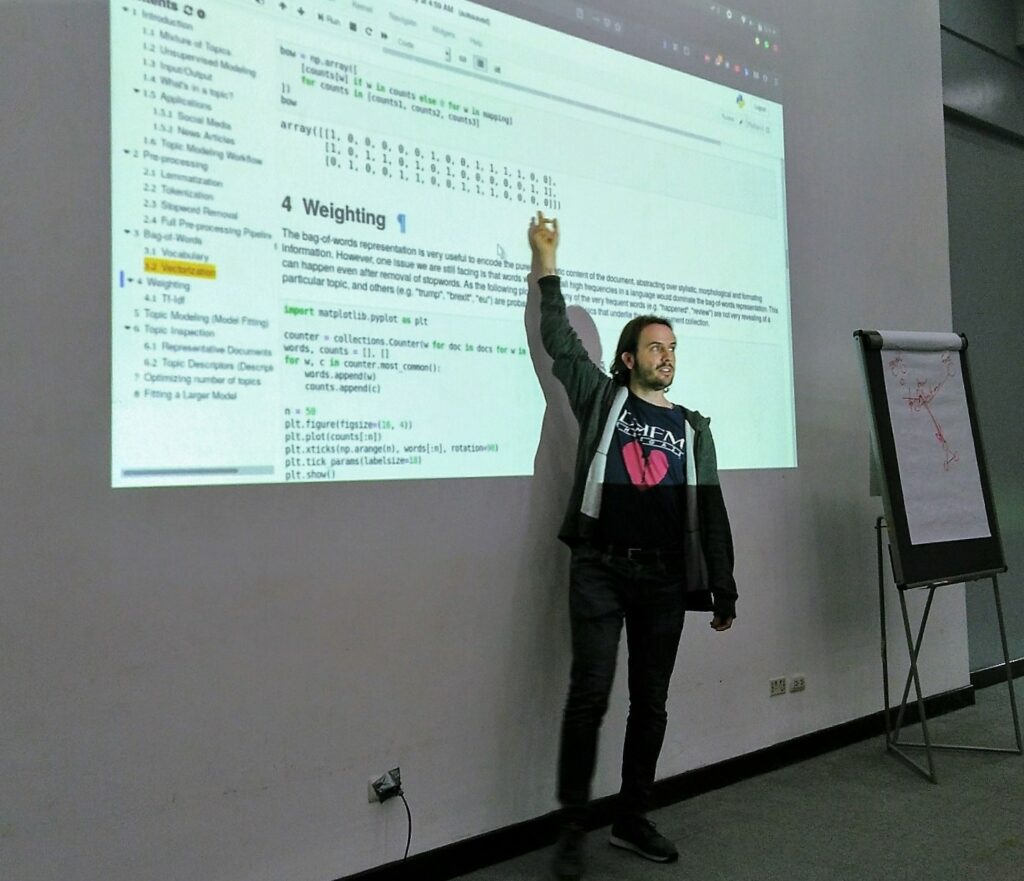
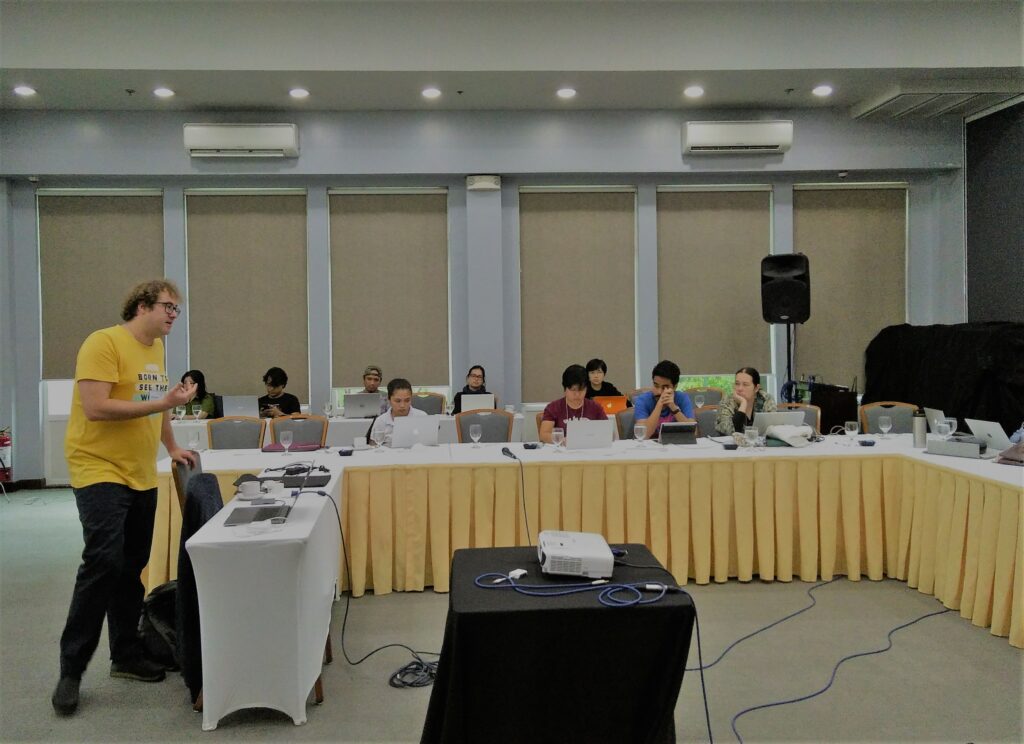
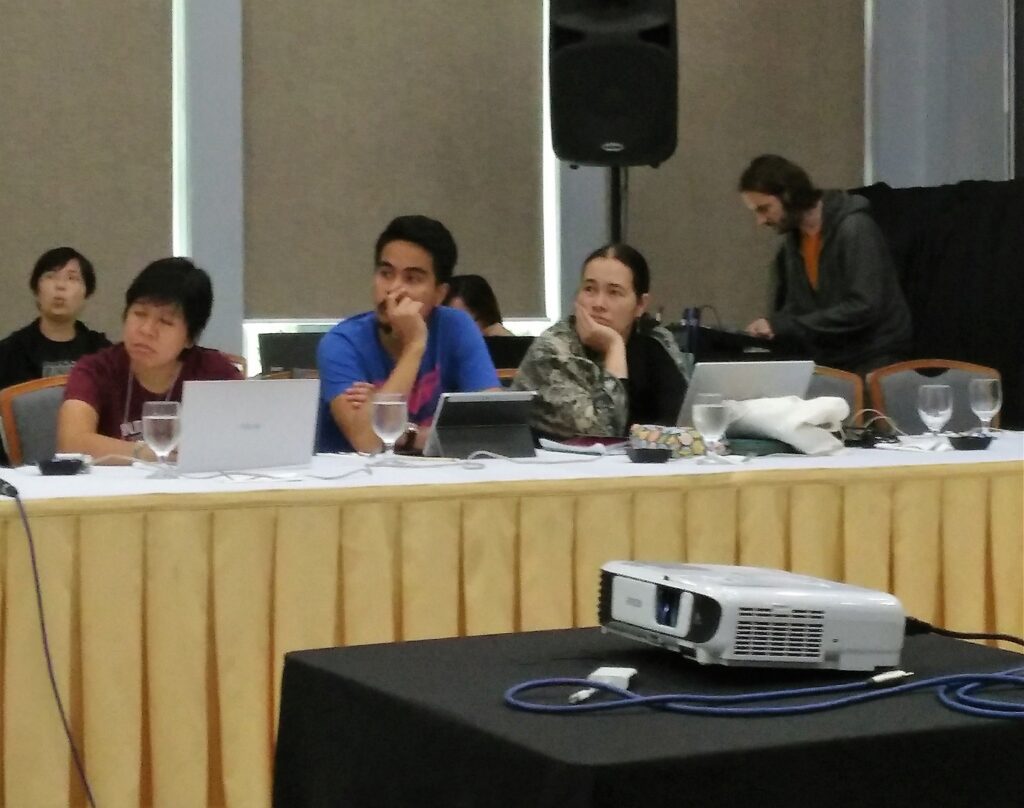
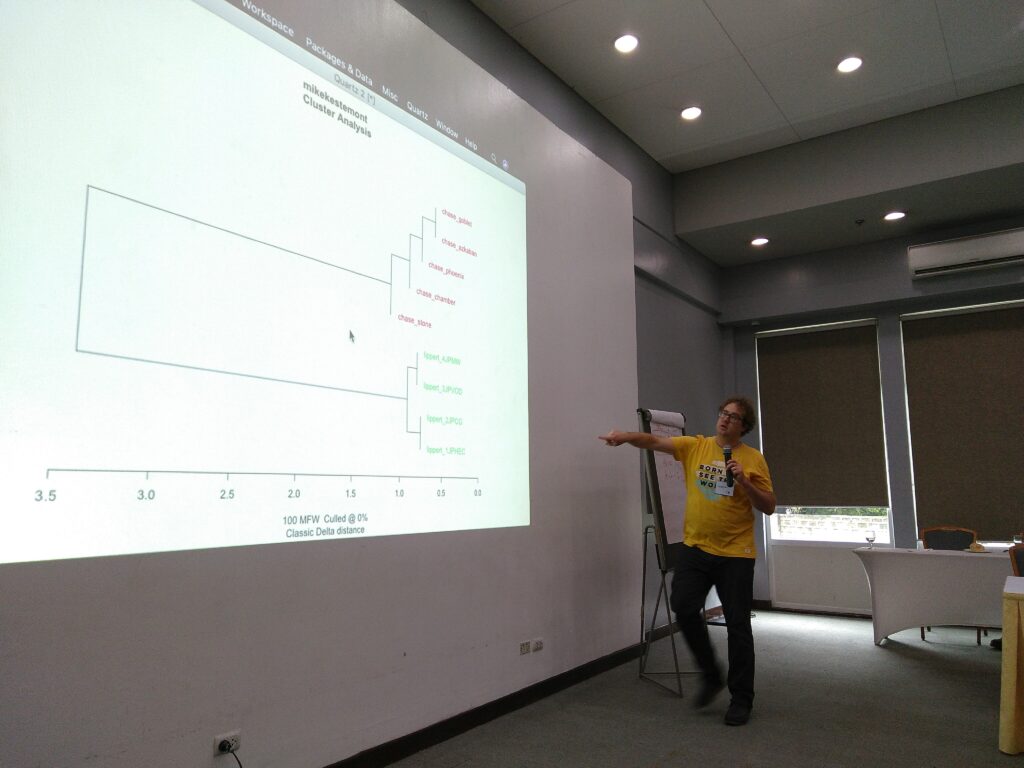
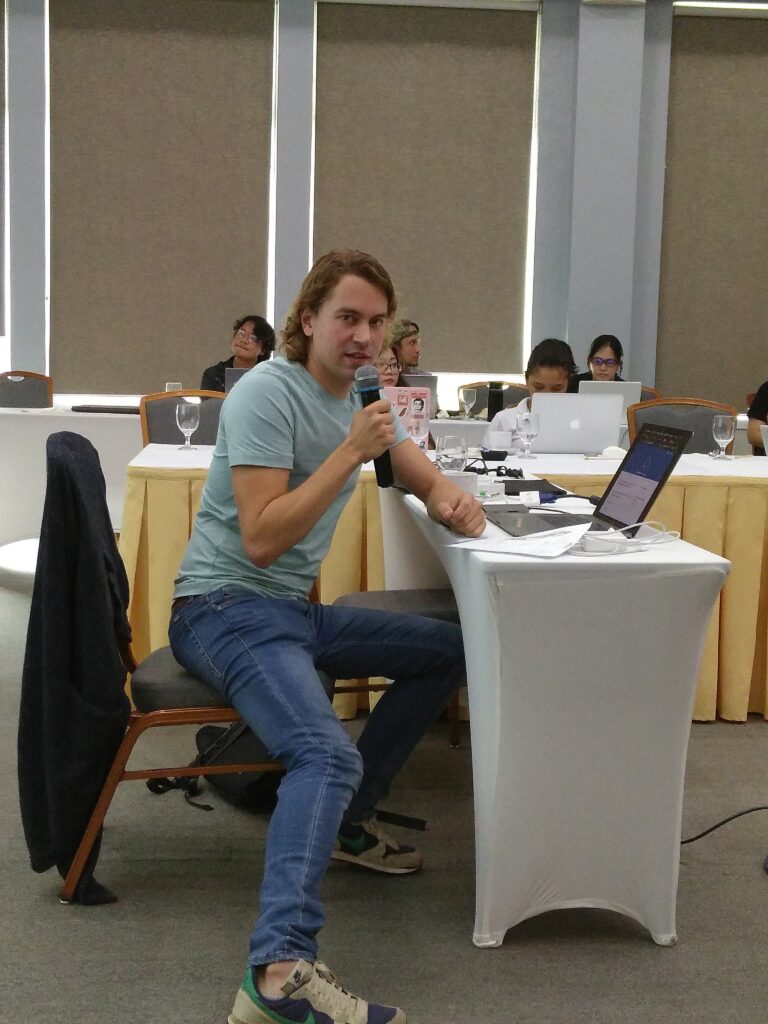
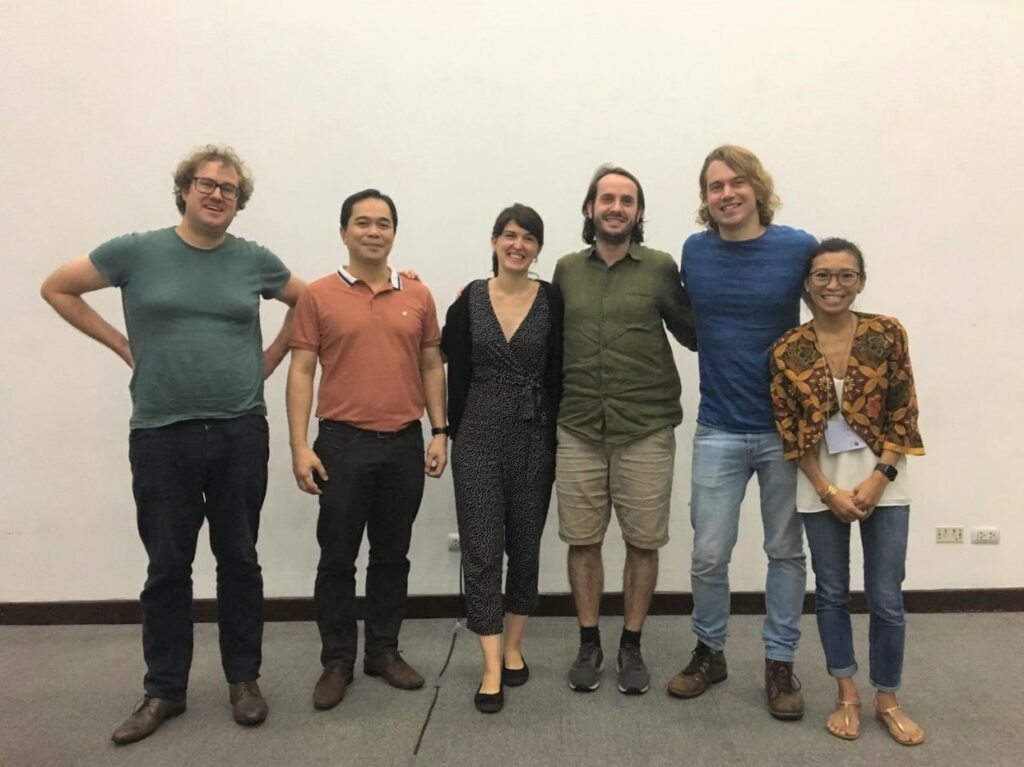
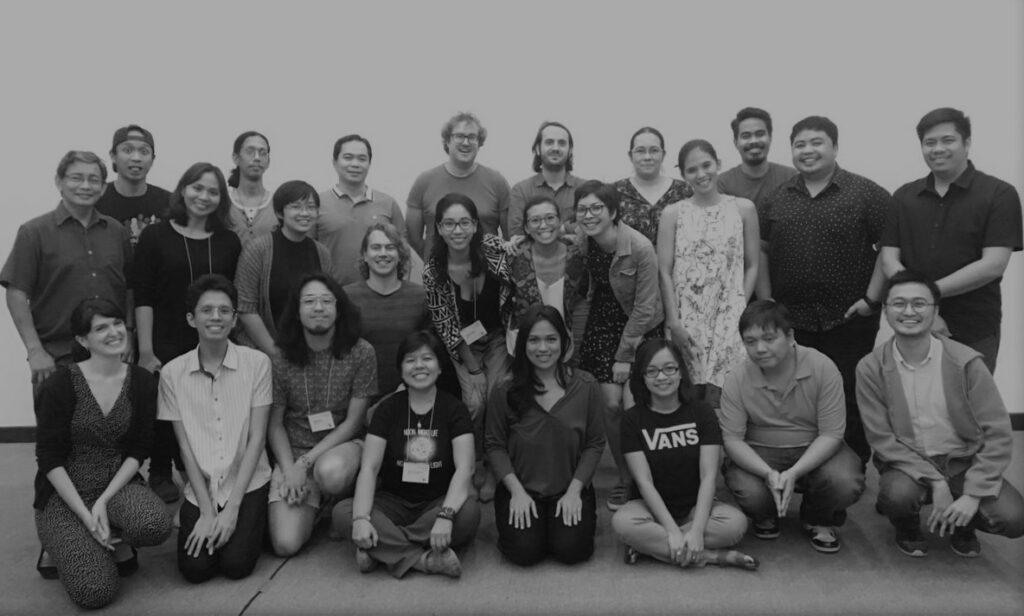
Until May 31 all Berliners and visitors could see a wonderful exhibition on Latin American cultural magazines at the Ibero-Amerikanisches Institüt from Berlin.
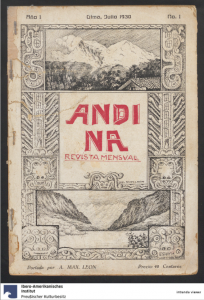
This exhibition is a milestone for a project of digitization of Latin American magazines that has been going on since 2013. Its result can be seen here.
The magazines were published between 1860 and 1930 and are transdisciplinar. The exhibition highlighted some of their topics or features: women sections, the evolution of the image throughout the years, and the international transferences: journalists collaborating in magazines from different countries, cross-national concerns, magazines from one country talking about events happening in another country…
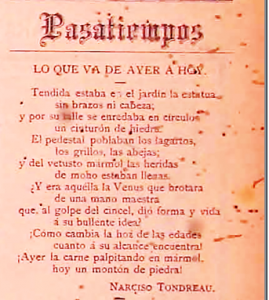
This cross-national predisposition seems to leave a gap for Philippine magazines in Spanish, which at that time were rather immersed in a Latin American virtual (or paper) communitiy. Events such as the press repercusion of the 1905 celebrations of the third centenary of the publication of Don Quixote in Latin America or the presence of Latin American poetry in the weekly Libertas since 1899 are a proof of it.
Ricarda Musser, the leader of the project and director of the library and the exhibition, has also underlined the presence of Philippine materials within their collections, for instance, of Filipino zarzuelas/ sarswelas.
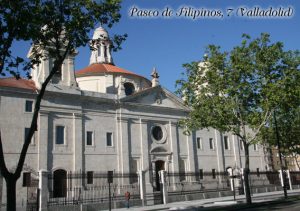
Over the last few months, we have been twice in Valladolid scanning Philippine newspapers from the 1890s. After this statement, a good question to ask would probably be… Why are there Philippine newspapers in Valladolid? Agustinian friars have a long tradition in the Philippines. Four Agustinians arrived in the archipelago in 1565 with Andrés de Urdaneta, also an Agustinian friar and a sailor who happened to discover the route back to Mexico from the Philippines. Actually, the Seminary in Valladolid (Spain) belongs to the “province” or Agustinian administrative division called “Santísimo nombre de Jesús de Filipinas” and is located in Paseo de Filipinos.
After the Battle of Manila in World War II, one of the few buildings that managed to remain standing in Intramuros was the convent of San Agustin. From there, they have been bringing to Spain library holdings and periodicals that were preserved in their Philippine premises. Later, priests such as F. Isacio Rodríguez O.S.A., and F. Blas Sierra de la Calle, have been travelling to the Philippines and returning to their Valladolid home with the latest books from and about the Philippines. This is how they have managed to have one of the biggest Filipiniana collections in Europe, right next to an Oriental Museum which tells the history of the order in Asia.
Father Mielgo, who takes care of the library nowadays, tells us that not many researchers are interested in the old Philippine newspapers kept in boxes without cataloguing that crumble down between our fingers when we touch them. However, the library attracts a number of researchers on the Philippines every year, including Filipino friars such as Ericson Borre O.S.A. We hope that the digitization of some of those newspapers will provide them with visibility and contribute to their preservation. I was personally really glad to find there four issues of Domus aurea, a literary magazine in Spanish edited in Manila in 1908 that I had not found anywhere else. Here is the link to their new catalogue with thousands of works on the Philippines.
During the last 5 years, different initiatives have started to digitize Philippine rare printed materials and gathering them in collections. Although most of these initiatives are based in the Philippines (we have already talked about the Digital Library of UST and their growing periodical collection), Spain or the US, there is one which is UK based. The School of Oriental and African Studies of the University of London (SOAS) has created Digital Filipiniana, a collection of miscellaneous rare books on the Philippines. They have, among others, 95 holdings in English, 27 in Spanish, 22 in Tagalog/ Filipino, and 10 in Malay.